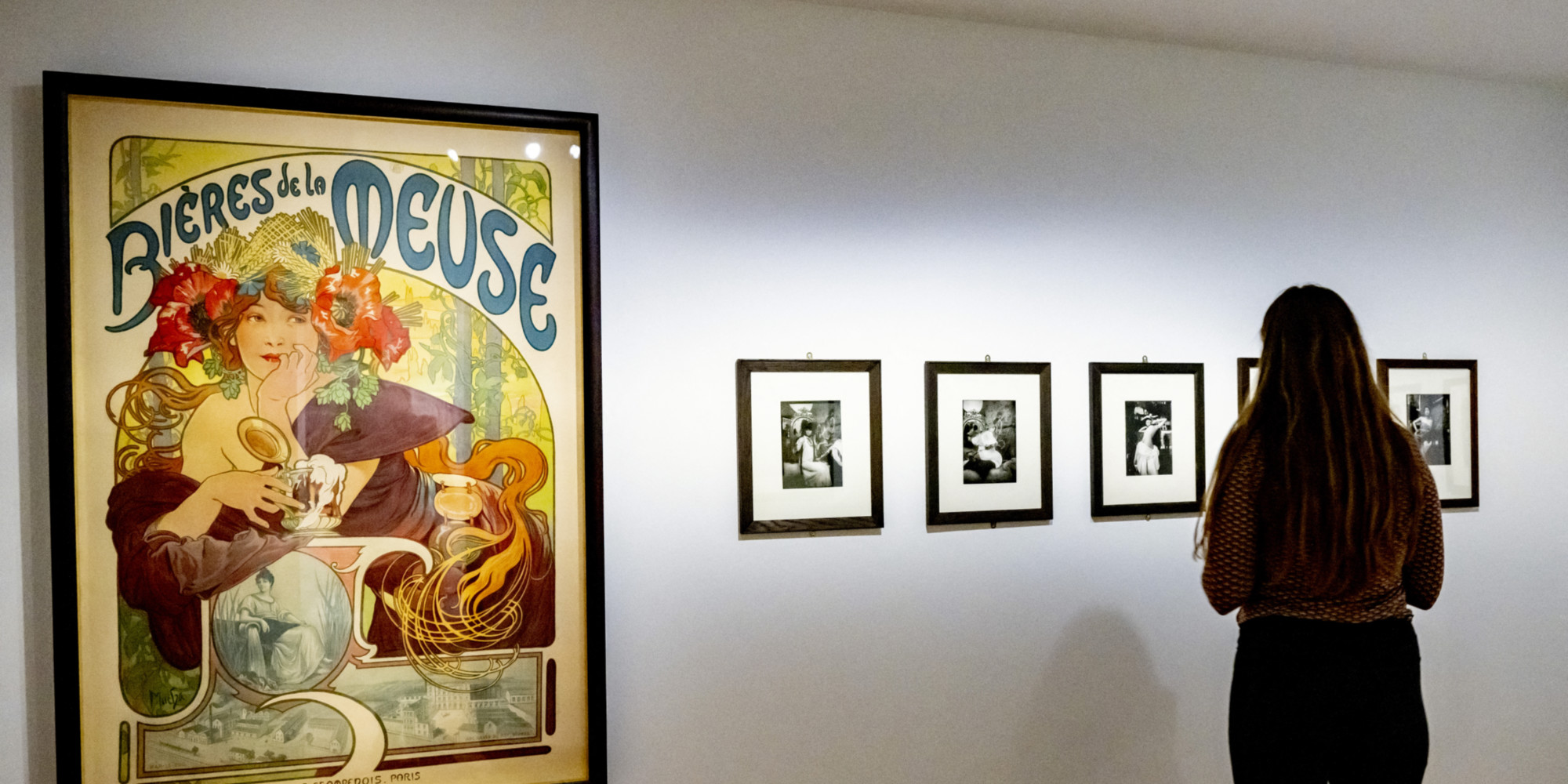Marie Gicquel, edited by Julia Solans 10:47 am, March 24, 2023
The works of Alphonse Mucha are in the spotlight at the Grand Palais Immersif in Paris until November 5th. A unique experience to admire the famous Parisian advertising posters of the Czechoslovak who died in 1939. Considered the master of Art Nouveau, his artistic vision has not always been unanimous."Eternal Mucha". If the name of Alphonse Mucha does not ring a bell, his advertising posters will necessarily speak to you. Until November 5th, the Grand Palais in Paris is offering an immersive exhibition among the works of Czechoslovakia. The most famous of his repertoire are none other than the Parisian posters present on many brands at the end of the 19th century. Champagnes or soaps, the capital quickly adhered to the artist's art nouveau. However, the painter was not unanimous at the beginning of his career.
"Gismonda", the poster that launched his career
At the beginning, the painter from Moravia, a region now located in the Czech Republic, tried his luck in the heart of the French capital. The illustrator then made the poster for the play Gismonda, a character played by Sarah Bernhardt. The printer finds the drawing awful but it pleases the actress enormously. The great-grandson of Alphonse Musa recounts the exchange between Bernhardt and the painter: "Mr. Mucha, you made me immortal." This phrase, which has become a family legend, marks the beginning of his success in France, more precisely in Paris.
>> READ ALSO - The works of the artist Giovanni Bellini exhibited in Paris for the first time
Sensory exposure
To better live the experience, the Grand Palais de Paris has pushed the limits of simple exhibition to offer visitors an olfactory experience. Indeed, the smells of the painter's life, such as the flowers of Moravia, are recreated to better understand his inspirations.
On a large screen, the refined drawings of the master of Art Nouveau come alive: pastel-colored flowers embrace goddesses with fine lines. Alphonse Mucha was also known for poetically recreating the nature of his homeland, all the memories he kept in his memory.

